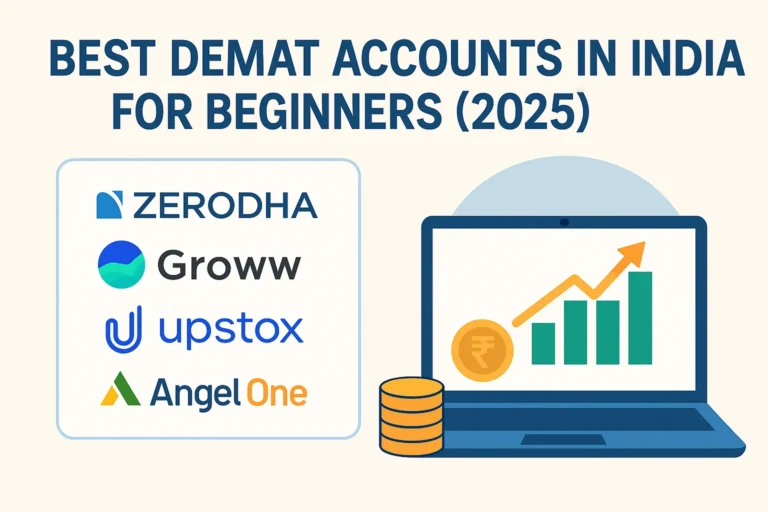What Is the Share Market? A Beginner’s Guide for India
If you’re new to finance, the term “share market” might sound intimidating. But understanding how it works is the first step to unlocking the world of investing and wealth creation. In this beginner-friendly guide, we’ll explain the basics of the Indian share market, including what shares are, how trading works, and how you can get started.
What Is the Share Market?
The share market (also known as the stock market) is a platform where buyers and sellers trade shares of publicly listed companies. When you buy a share, you’re purchasing partial ownership in that company.
In India, share trading takes place primarily through two stock exchanges:
- BSE (Bombay Stock Exchange)
- NSE (National Stock Exchange)
What Are Shares?
Shares, or stocks, represent ownership in a company. When a company wants to raise funds, it offers shares to the public via an IPO (Initial Public Offering). Once listed, these shares are traded on the stock exchange.
Example:
If you buy 10 shares of Infosys, you become a part-owner of the company and may receive dividends and voting rights.
Key Players in the Indian Share Market
- Investors/Traders: Retail participants like you and me
- Stock Brokers: Platforms like Zerodha, Groww, Angel One that allow you to trade
- SEBI: The regulatory body that monitors and protects investors
- Exchanges: NSE and BSE facilitate buying/selling
How Does the Share Market Work?
- A company lists its shares through an IPO
- Investors buy/sell shares through a Demat & Trading account
- Orders are placed via stock brokers
- The trade is executed and shares are stored digitally in your Demat account
- Prices change constantly based on demand, supply, news, and fundamentals
Types of Markets
- Primary Market: Where new shares are issued (e.g., IPOs)
- Secondary Market: Where existing shares are bought and sold (e.g., NSE/BSE)
Basic Terms to Know
- Demat Account: Holds your shares in digital form
- Trading Account: Used to place buy/sell orders
- Sensex & Nifty: Indices that represent the overall market performance
- Bull Market: Market rising in value
- Bear Market: Market declining in value
Why Should You Invest in the Share Market?
- Potential for higher returns than traditional savings
- Wealth creation through long-term investing
- Power of compounding and dividend income
- Easy access through mobile trading apps
Risks to Consider
- Market volatility can lead to losses
- Requires knowledge, discipline, and patience
- Not insured like fixed deposits or savings accounts
How to Start in India?
- Get a PAN card and link it with Aadhaar
- Open a Demat & Trading account (Zerodha, Upstox, Groww, etc.)
- Transfer funds from your bank
- Start investing in Nifty 50, Mutual Funds, or individual stocks
- Learn regularly and invest wisely
Final Thoughts
The Indian share market offers a world of opportunity for those willing to learn and stay consistent. With the right tools and education, even a beginner can start building wealth step by step. Don’t fear the market — understand it.
FAQs
1. Is the share market safe for beginners?
Yes, with proper knowledge and long-term investing, it can be safe and profitable.
2. How much money do I need to start?
You can begin with as little as ₹100 using mutual funds or ₹500 for stocks.
3. What’s the difference between NSE and BSE?
Both are stock exchanges. NSE has more volume; BSE is older.
4. Do I need both Demat and Trading accounts?
Yes, both are needed to buy and hold stocks in India.
5. Can I lose all my money in the stock market?
If you invest blindly or trade recklessly, yes. With research and patience, risk can be managed.



